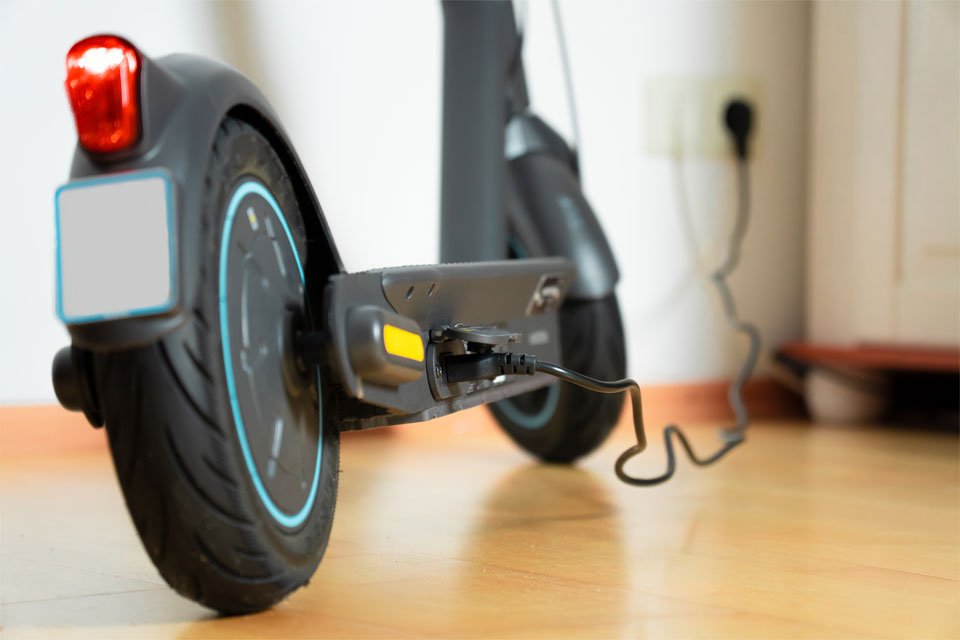Lithium-Ion Battery Safety Tips for Property Owners and Their Tenants


There are many things that may keep a property owner up at night, from a difficult tenant to a breakdown of essential equipment. Lately, though, your main concern might center around the alarming increase in fires in residential, commercial, and mixed-use buildings that have been caused by lithium-ion batteries. These batteries are typically smaller and lighter than other types of batteries but can hold the same amount of energy, so they have rapidly been adopted by tech companies as the preferred power source for a variety of today’s most popular rechargeable electronic devices, including drones, hoverboards, and e-scooters and e-bikes.
The National Fire Protection Association (NFPA) reports that lithium-ion batteries generally provide an effective, efficient, and safe source of energy and that there is a low probability of them catching fire if they are treated correctly. However, the NFPA has also stated that serious problems, like overheating, fires, and explosions, may arise if these batteries have manufacturing defects, are damaged, or are not being used, stored, or charged properly.
We know your goal as a building owner is to minimize the likelihood of any risk that could impact you, your property, or your tenants. In the case of fires caused by lithium-ion batteries, you are going to need to enlist your tenants’ help to try to prevent this disaster. A good way to start is to make sure your tenants understand the dangers associated with these batteries and the devices they power, and to confirm that your tenants are sticking to best safety practices, like the following:
Finally, your tenants should be aware of signs that their device or device battery, or both, are in real trouble, which can include a battery giving off an odor or too much heat, changing color or shape, or making odd noises. These are some of the problems that can escalate to an emergency in minutes, so it’s critical that your tenants can recognize them and know to call 911 right away.
As lithium-ion batteries become even more prevalent in electronic devices, the potential for an incident to happen certainly increases. But by spreading information about how to safely use, charge, and store these products, building owners may be able to better safeguard their tenants as well as their valuable investment from this threat. The Andover Companies is committed to helping make this responsibility easier by continuing to provide you with insights into protecting the things that are most important to you and your tenants.
Sources:
https://www.nfpa.org/downloadable-resources/safety-tip-sheets/lithium-ion-battery-safety-for-consumers-tip-sheet?l=0
https://www.nfpa.org/en/Education-and-Research/Electrical/Ebikes
https://www.cnn.com/2023/03/09/tech/lithium-ion-battery-fires?cid=ios_app
https://news.umich.edu/tips-for-extending-the-lifetime-of-lithium-ion-batteries
Click on the Find an Agent button to search for independent insurance agencies near you.
Contact the independent insurance agency you would like to work with by phone or email.
Leave it up to your agent to uncover the best coverage solutions for your valuable property.